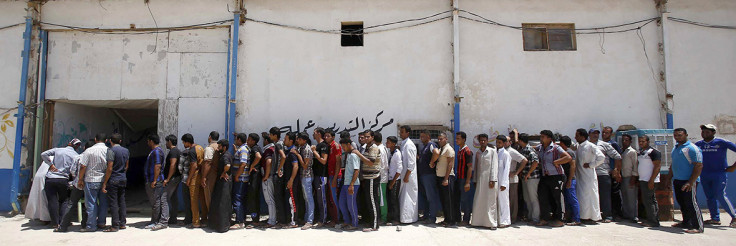Drive Isis Out of Iraq Now or Repent Later, Says Shia Spiritual Head Ali al-Sistani

Grand Ayatollah Ali al-Sistani, the spiritual leader of Shiites in Iraq, has called for the expulsion of Sunni militant group Isis from the country and suggested the Nouri al-Maliki government's mistakes had worsened the sectarian divide in the country.
The Grand Ayatollah, who had earlier exhorted Shiite believers in Iraq to take up arms to defend the government from advancing troops of the Sunni militant group, the Islamic State in Iraq and the Levant (Isis), has now said that everyone would regret in future if the militia were not thrown out.
"If fighting and dislodging them is not done today, all will feel sorry tomorrow," said the octogenarian leader revered by Shiites in Iraq.
Al-Sistani asked both Sunnis and Shias to join hands to defend the country's integrity and said the newly elected parliament should convene to take the process of government formation ahead.
In what could be a veiled reference to Maliki's policies, which his western supporters believe were inadequate to heal the sectarian divide in the country, al-Sistani said Baghdad should not repeat the past mistakes.
The Isis militants ripped through the north of the country, taking control of Mosul and Tikrit and launching an audacious attack on the biggest oil refinery in the country even as the US-trained army disintegrated.
Maliki appealed for US help to contain the militants' advance into Baghdad but the US has not decided if it should launch air strikes on the insurgents.
Reports from Washington have said the White House thinks Maliki should be replaced before the US steps in to prop up Baghdad.
US intelligence agencies' warning
Reuters reported that US intelligence agencies had warned Maliki that his government's failure to reconcile festering differences between the rival Muslim communities was alienating the Sunni minority.
Citing two security officials, the agency said high-ranking US policymakers had concluded that Maliki's policy and his government were fomenting animosity among the Sunnis and that a backlash was in the making.
Meanwhile, the Pentagon has said Iran has sent a small number of troops into Iraq to stop the Isis militants' advance to Baghdad.
"There are some Iranian revolutionary operatives in Iraq but I've seen no indication of ground forces or major units," Admiral John Kirby said.
Tehran had earlier said it would step in to protect Shia holy shrines in Iraq from the Sunni insurgents.
© Copyright IBTimes 2025. All rights reserved.






















